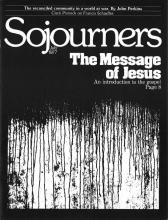One of Rosalyn Carter’s goals in her recent trip to Latin America was to improve relations with Brazil’s military government. But the realities of life in Brazil could not have been more aptly demonstrated than by two American missionaries arbitrarily arrested, imprisoned, and beaten, sharing for four days the plight experienced by tens of thousands of Brazilians for months and years.
Mrs. Carter met with them for 15 minutes while in Recife, Brazil. She said she would carry home a personal message from them to Jimmy. Whatever it was, it made no difference in the administration’s policy toward human rights legislation. A few days later, administration lobbyists marshaled their forces to defeat a Senate amendment offered by Senators Mark O. Hatfield and James Abourezk, which previously passed in the House, that would have cut off multilateral aid to countries grossly violating human rights unless such assistance directly benefited the poor.
Printed below, as part of our editorial section, is the account of their arrest and treatment. We print it not because it is unusual, but because it is normal for millions of people throughout the world, living under regimes like those in Brazil.
Read the Full Article
To continue reading this article — and get full access to all our magazine content — subscribe now for as little as $4.95. Your subscription helps sustain our nonprofit journalism and allows us to pay authors for their terrific work! Thank you for your support.
Already a subscriber?
Login
